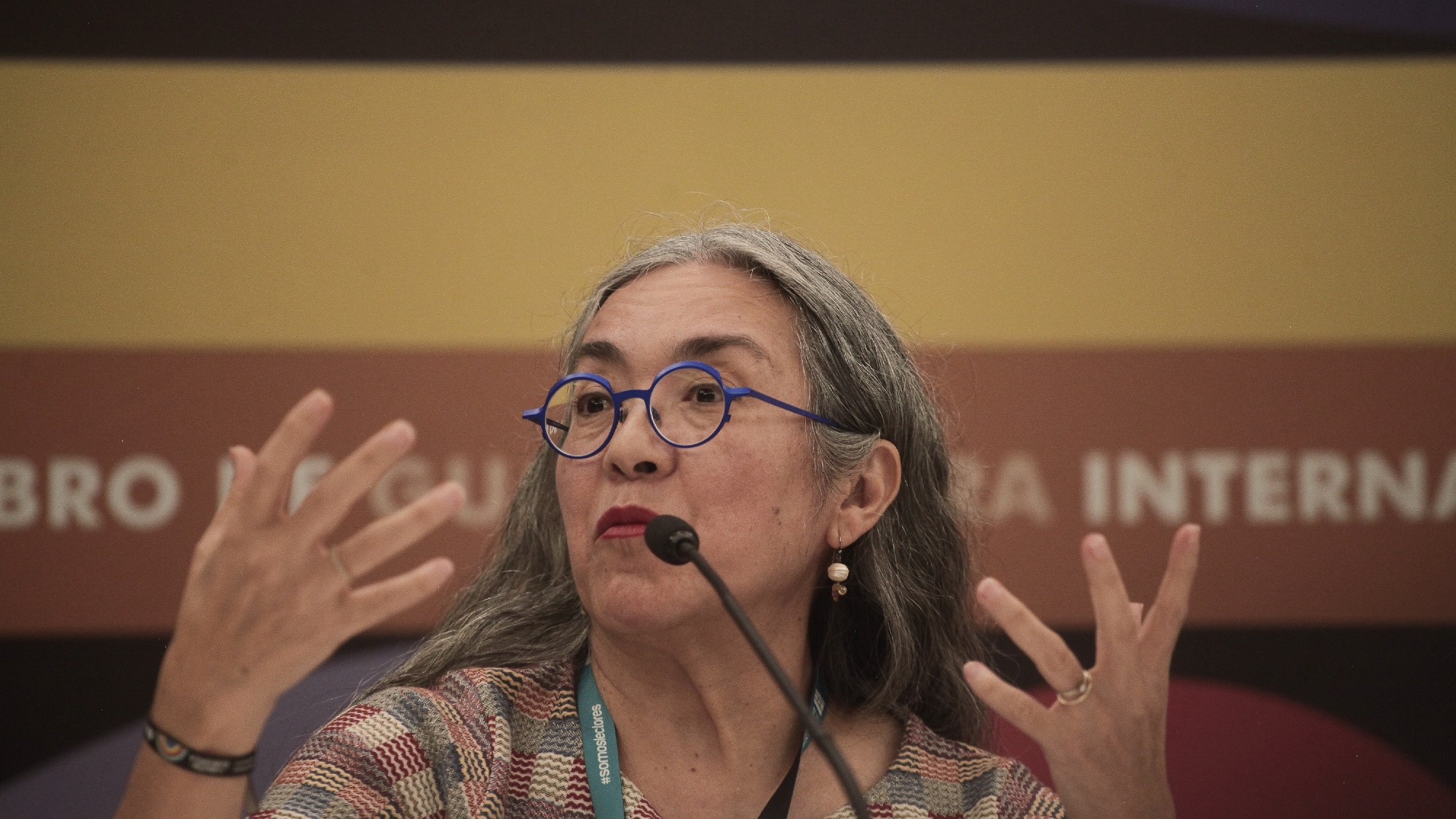Cristina Rivera Garza continues crossing borders into award-winning territories
The prolific Mexican author just won the 2024 Pulitzer for Memoir or Autobiography


A free daily email with the biggest news stories of the day – and the best features from TheWeek.com
You are now subscribed
Your newsletter sign-up was successful
It took Cristina Rivera Garza, 2024's newly minted Pulitzer Prize winner for memoir, 30 years to write the story of her sister's murder.
The book, "El Invencible Verano de Liliana," was first published in Mexico in 2022 before its debut in the U.S. in 2023 as "Liliana's Invincible Summer: A Sister's Search for Justice." The toggling between — and now accolades in — two different countries is routine for Rivera Garza, a professor and author, poet and critic who has written more than 20 books.
Who is Cristina Rivera Garza?
Rivera Garza was born in the bordertown of Matamoros in eastern Mexico. Her teaching career has taken her to both sides of the Mexico-United States border, with posts that have included UNAM (National Autonomous University of Mexico) and her current position at the University of Houston.
The Week
Escape your echo chamber. Get the facts behind the news, plus analysis from multiple perspectives.

Sign up for The Week's Free Newsletters
From our morning news briefing to a weekly Good News Newsletter, get the best of The Week delivered directly to your inbox.
From our morning news briefing to a weekly Good News Newsletter, get the best of The Week delivered directly to your inbox.
Her writing has won nearly every major literary award in Mexico, including the José Donoso award for a writer's body of work and the Xavier Villaurrutia award for a single work, for the original Spanish-language edition of "Liliana's Invincible Summer." Rivera Garza's writings grapple with the concept of fluidity. "To read Cristina Rivera Garza’s work is to be immersed in a kind of borderlessness," said Sohini Basak in Wasafiri. "Her writing moves seamlessly between fiction, memoir, literary criticism, poetry, archival work.… Working in both Spanish and English, between Mexico and the United States, her deeply interconnected books engage with all kinds of boundaries: of the body and gender, of the ecological and human world, of the limitations of communication and language, of histories both personal and collective."
One of Rivera Garza's most celebrated books in Mexico is "Nadie Me Verá Llorar (No One Will See Me Cry)," a tale of two institutionalized patients, a morphine-addicted photographer and a prostitute, during the era of the Mexican Revolution in the early 20th century. The book "offers a new vision of Mexican history and of the future of literature in the region" with its "blending of historical documents with fictionalized accounts of lives," said Cheyla Rose Samuelson in an interview with Rivera Garza in the journal Confluencia. In the novel, as with much of her work, Rivera Garza, ever the interrogator of boundaries, ruptures the line between documentation and fiction.
What is her Pulitzer-winning memoir about?
The memoir "Liliana's Invincible Summer" fractures genres too, and here in the U.S., Rivera Garza is finally getting her flowers with a Pulitzer win. The book is, in part, a strict recreation of both her sister Liliana and the aftereffects of Liliana's murder in 1990. But the book is also a call to action related to Mexico's ongoing femicides. When Liliana's boyfriend murdered her, the government did not find nor prosecute the perpetrator. During the time period Liliana was murdered, such violations were called crimes of passion. Cultural and political change over the three ensuing decades empowered Rivera Garza to finally tell Liliana's tale. "I had to wait for us as a community and a society to produce a language through which I could tell this story from my sister’s point of view," Rivera Garza said to The New York Times.
The book's release in 2022 sparked further activism and political movement around femicide in Mexico. It gave voice and presence not just to Liliana but endless other Mexican women who have been murdered over the years. "There is a larger concept of justice that involves the preservation of memory and the truth, as well," Rivera Garza said about the memoir. "I realized little by little that the book in fact was trying to do that work."
A free daily email with the biggest news stories of the day – and the best features from TheWeek.com
Scott Hocker is an award-winning freelance writer and editor at The Week Digital. He has written food, travel, culture and lifestyle stories for local, national and international publications for more than 20 years. Scott also has more than 15 years of experience creating, implementing and managing content initiatives while working across departments to grow companies. His most recent editorial post was as editor-in-chief of Liquor.com. Previously, he was the editor-in-chief of Tasting Table and a senior editor at San Francisco magazine.
